Will a Doctor Check for Oral Herpes During a Visit?
As someone who has dealt with the discomfort of oral herpes in the past, I know how important it is to be aware of the signs and symptoms. If you've been wondering, "Will a doctor check for oral herpes during a visit?" you’re not alone. Many people ask this question when they visit their healthcare provider, especially if they’re experiencing symptoms like cold sores or discomfort around their lips or mouth.
In this article, I’ll walk you through everything you need to know about oral herpes, how doctors diagnose it, and whether or not they’ll check for it during a routine visit. By the end, you’ll have a better understanding of the disease and how it’s managed by healthcare professionals.
1. What Is Oral Herpes?
Oral herpes, also known as cold sores or fever blisters, is caused by the herpes simplex virus (HSV). There are two types of herpes simplex viruses: HSV-1 and HSV-2. Although HSV-1 is typically associated with oral herpes, both strains can cause infections in the mouth, lips, or genital area.
The virus spreads through direct contact with an infected person’s skin, saliva, or mucous membranes, making it highly contagious. The virus can lie dormant in the body and reactivate under certain conditions, leading to painful outbreaks that often appear as blisters or sores around the mouth.
2. Symptoms of Oral Herpes
The symptoms of oral herpes can vary from person to person, but the most common signs include:
- Small, painful blisters or sores around the lips, mouth, or gums.
- Itching or a burning sensation in the affected area.
- Swelling and redness around the blisters.
- Flu-like symptoms during an outbreak, such as fever and swollen lymph nodes.
For some individuals, these outbreaks may be triggered by stress, illness, sun exposure, or hormonal changes. If you experience any of these symptoms, you might be wondering whether your doctor will check for oral herpes during a visit.
3. Will a Doctor Check for Oral Herpes During a Visit?
During a routine check-up or medical visit, doctors typically won’t check for oral herpes unless you explicitly mention symptoms such as sores or irritation around your mouth. However, if you present with symptoms that suggest oral herpes, your doctor will likely perform a visual examination to assess the situation.
In some cases, if the symptoms are not typical or if it’s difficult to diagnose based on appearance alone, your doctor may recommend further tests. These tests can include:
- Viral culture: A sample is taken from the blister or sore to test for the herpes virus.
- Polymerase chain reaction (PCR) test: This test amplifies the virus's DNA to identify the specific type of herpes infection.
- Blood test: A blood test may be done to detect the presence of herpes antibodies in your system, indicating past exposure to the virus.
So, if you’re experiencing symptoms of oral herpes, it's a good idea to let your doctor know. They will be able to recommend the appropriate course of action and provide a diagnosis based on your specific condition.
4. How Do Doctors Diagnose Oral Herpes?
Oral herpes is typically diagnosed by examining the characteristic sores or blisters that appear on or around the mouth. Doctors will often rely on the appearance of the sores, coupled with your reported symptoms, to make an initial diagnosis. However, in some instances, additional diagnostic tests may be necessary if the symptoms aren’t clear-cut or if it’s the first outbreak.
Once diagnosed, your doctor will be able to suggest treatment options and guide you through managing outbreaks in the future.
5. Treatment Options for Oral Herpes
There is no cure for oral herpes, but there are several treatment options that can help reduce the severity and duration of outbreaks. The primary treatments for oral herpes include antiviral medications, which can help shorten the duration of an outbreak and prevent future outbreaks from occurring. Some common antiviral medications include:
- Acyclovir (Zovirax)
- Valacyclovir (Valtrex)
- Famciclovir (Famvir)
Over-the-counter creams and ointments can also provide relief by numbing the affected area or reducing discomfort. In addition to medication, doctors may recommend lifestyle changes to help prevent outbreaks, such as managing stress and avoiding triggers like excessive sun exposure.
6. Can Oral Herpes Be Prevented?
While there is no foolproof way to prevent oral herpes, there are steps you can take to reduce the risk of outbreaks and transmission. Some preventive measures include:
- Using lip balms or sunscreens on your lips to prevent sunburn, which can trigger outbreaks.
- Avoiding close contact with someone who has an active outbreak.
- Maintaining a strong immune system through proper diet, exercise, and sleep.
- Avoiding excessive stress, as stress is a common trigger for herpes outbreaks.
Practicing good hygiene, such as washing your hands frequently and avoiding sharing personal items like towels or razors, can also help reduce the risk of spreading the virus to others.
7. Conclusion
Oral herpes is a common and manageable condition, but it’s important to understand the symptoms, diagnosis, and treatment options available. If you're experiencing symptoms such as cold sores or blisters around your mouth, it’s crucial to visit your doctor for an evaluation. They can provide a diagnosis and suggest appropriate treatments to manage the condition.
If you’ve been wondering whether a doctor will check for oral herpes during a visit, remember that it typically depends on whether you mention symptoms or have visible sores. Don't hesitate to bring it up with your healthcare provider for a proper diagnosis and tailored treatment plan.

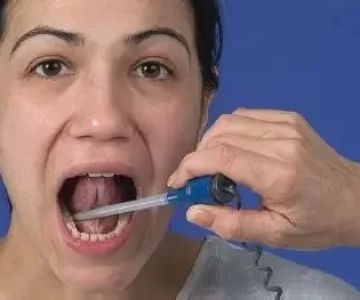
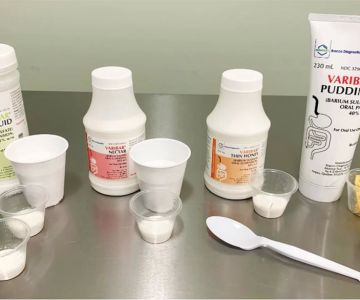
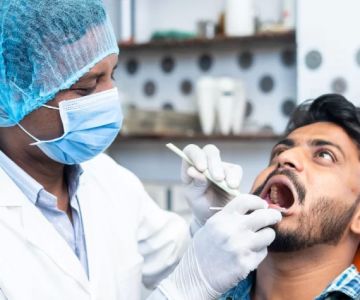
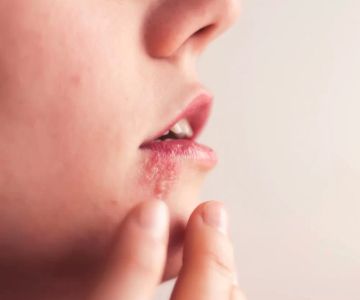
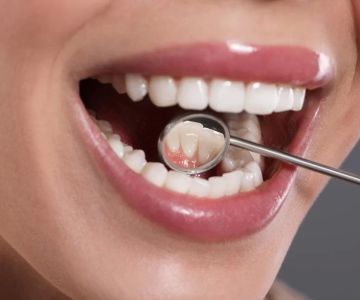
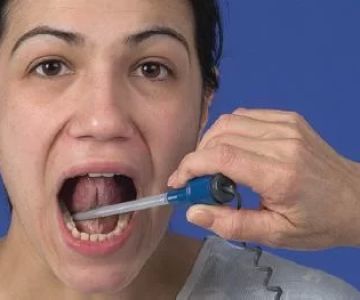
 Tiny Tooth Co. and Trindade Orthodontics4.0 (107 review)
Tiny Tooth Co. and Trindade Orthodontics4.0 (107 review) Farzad Khalili, LD0.0 (0 review)
Farzad Khalili, LD0.0 (0 review)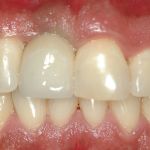 Robert S. Radin, DDS4.0 (2 review)
Robert S. Radin, DDS4.0 (2 review)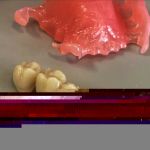 Dr. Aaron M. Shearman4.0 (14 review)
Dr. Aaron M. Shearman4.0 (14 review) Orangecrest Dental Group4.0 (54 review)
Orangecrest Dental Group4.0 (54 review) Sapphire Dental Care4.0 (384 review)
Sapphire Dental Care4.0 (384 review) The Importance of Oral Health Education During Pregnancy for a Healthy Pregnancy
The Importance of Oral Health Education During Pregnancy for a Healthy Pregnancy Best Tips for Brushing Your Teeth Properly for Healthy Gums: Essential Techniques for Oral Health
Best Tips for Brushing Your Teeth Properly for Healthy Gums: Essential Techniques for Oral Health Why Skipping Dental Checkups Can Lead to Bigger Oral Health Problems
Why Skipping Dental Checkups Can Lead to Bigger Oral Health Problems Advantages of Porcelain Dental Restorations
Advantages of Porcelain Dental Restorations How Can Diabetes Cause Tooth and Gum Problems? Preventing and Managing Oral Health Issues
How Can Diabetes Cause Tooth and Gum Problems? Preventing and Managing Oral Health Issues Healthy Habits for Promoting Good Oral Health and Hygiene: Tips for a Healthy Smile
Healthy Habits for Promoting Good Oral Health and Hygiene: Tips for a Healthy Smile